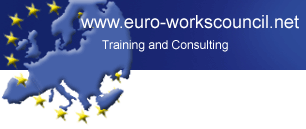




|
An EWC agreement for the Italian bank UniCredit was signed in January 2007. It applies not only to the EU countries but
also to Switzerland, Croatia, Bosnia, Serbia, San Marino, Russia, the Ukraine and Turkey. → Further information |

|
Workers' representatives of the transport sector from six countries met in the Romanian seaport Constanţa in May 2007
to inform themselves about the formation of European works councils und its competences. → Further information |
 |
Eckhard Voß "Marriages of Convenience" EU Directives on employee information and consultation and trade unions in the new member states → Download |
 |
Country report Czechia New labour code and EWC work → Read this report |
 |
Country report Turkey Turkey: a topic for the EWC? → Read this report |